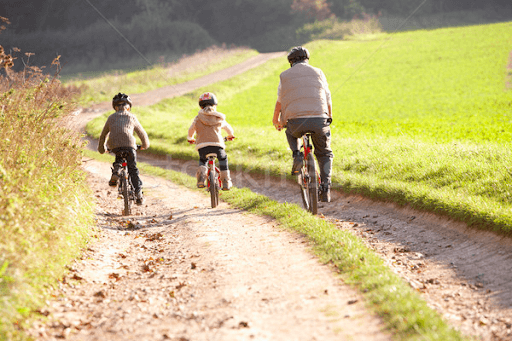Dr Lisa Myers
The teenage years mark the onset of numerous mental health disorders, particularly depression and other mood disorders. This is largely due to a process that happens in the teenage brain, called “pruning”. During this process, parts of the brain that are “less used” are “clipped away”, exposing vulnerable areas of the brain that underlie these mental health difficulties. Puberty, hormone changes and the psychological stage of identity formation are other significant contributors to the onset of your teen’s emotional challenges.
A study of 3493 youth aged 14-21 years, published in the Journal of Psychiatric Research (2018) found a link between those teenagers who didn’t engage in physical activity and an increased likelihood of being diagnosed with depression, anxiety and substance abuse.
Exercise is an easy and less confronting way to engage and connect with your teenager, who would normally not be seeking much parent contact. A joint activity might provide an opportunity to support and enhance your teenager’s emotional/psychological health and well-being, whilst improving their physical health – and your own!!
Exercise benefits:
- Enhances mood and reduces anxiety
- Improves body image, self-esteem and self-worth
- Releases stress and tension
- Improves physical health and ultimately, mental health
- Great avenue for socialising and meeting other like-minded young people
- Improves cognitive functioning such as attention, concentration and mental agility
- Allows for less time on social media
- Encourages mindfulness and decreases ruminations
- Improves the feelings of mastery and success
- Fosters resilience
It is well known that teenagers have an increased awareness of their body image. During teenage years, both girls and boys become more pre-occupied with their bodies and how it differs from other teens. Your teenager might start dieting or eliminating certain foods, particularly meat or carbohydrates. Fads and lifestyle changes are common at this time e.g. becoming vegan. It would be important to gently monitor the changes in your teenager’s eating and/or exercising behaviours, especially if these become extreme, excessive, secretive, time-consuming or result in severe weight losses and other unhealthy body changes. Teenage bodies are changing and susceptibility to weight gain, becomes prevalent. Try to encourage a focus on “health and balance”; as opposed to an obsession with weight goals. The latter might only encourage unhealthy behaviours and “bad habits” to control weight gains.
What can parents do?
- Model healthy behaviours – balanced eating and regular exercise
- Offer options of exercise – strength training, gyms, yoga, outdoor camps, more structured sports or activities
- Offer to join or to take them along if it helps
- Don’t “hassle” them too much
- Remain positive and encouraging of their health
- Build their self-esteem and confidence by giving positive feedback for their efforts
- Gently encourage them by allowing them to reflect on the impact of any unhealthy behaviours or eating habits
- Leave out good reading material about the benefits of exercise and on how to start a new exercise, especially weight training
- Subtle exercise – go for a bike ride as a family, take a ball to the park and have a picnic, get an active video game
- Give them a tracker or pedometer as a present
- Help them to find apps that might support their exercise
- Set a challenge or a goal to achieve with a desired reward
- Be sure that their health is good enough to start exercising
- Buy and serve healthy food at home
- Support them in packing healthy school lunches


